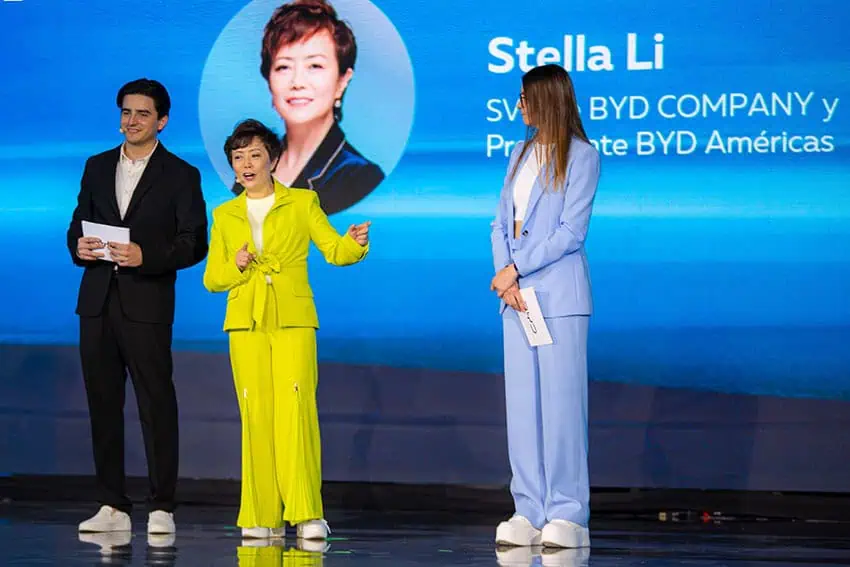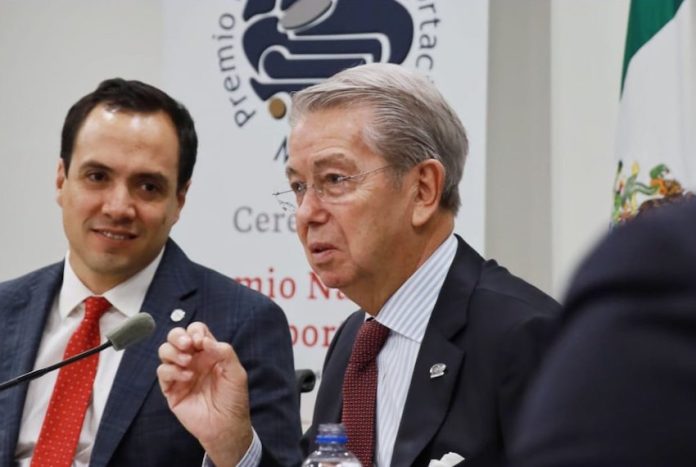The federal government’s judicial reform, approved by the Senate on Wednesday morning, will not affect investors’ confidence in Mexico, according to the president of the Mexican Business Council for Foreign Trade, Investment and Technology (COMCE).
“The certainty of the business sector is real, we’re not shooting ourselves in the foot,” Sergio Cardenas said on Tuesday, referring to the government’s plan to allow citizens to directly elect Supreme Court justices and thousands of other judges.
“We’re still growing and we will continue growing,” he added.
CEO de COMCE, de los exportadores más importantes del país, asegura que México ya es indispensable para EU. Para dimensionar los hechos. Sergio Contreras en entrevista con @RevistaFortuna y Economía Social pic.twitter.com/Jdnymbl9F5
— Claudia Villegas (@LaVillegas1) August 23, 2024
There has been significant concern that the judicial reform will kill or at least critically harm Mexico’s nearshoring opportunity.
The Wall Street Journal reported this week that foreign companies are holding back approximately US $35 billion in investment in Mexico due to uncertainty related to the government’s judicial reform, which passed the lower house of Congress last week and the Senate in the early hours of Wednesday morning.
Critics of the reform claim that Mexico will lose its attractiveness as a destination for investment if the judiciary is politicized as a result of the election of judges from candidates nominated by a Congress controlled by the ruling Morena party and a president of the same political persuasion – i.e. Claudia Sheinbaum.
But Contreras believes that foreign direct investment (FDI) in Mexico will continue to grow in the coming years.
Speaking at a press conference in Mexico City to promote an upcoming foreign trade conference in Aguascalientes, the COMCE president said that foreign investors’ confidence in Mexico is reflected in data that shows that Mexico received just over US $36 billion in FDI in 2023.
He also noted that more than $31 billion in FDI flowed into Mexico in the first six months of 2024, a record high and an increase of 7% compared to the same period of last year.
Contreras predicted that FDI in Mexico will exceed US $40 billion in 2024, and average $48 billion annually in the next three years.
Numerous foreign companies, including electric vehicle behemoths Tesla and BYD, are yet to act on investment announcements they have made, indicating that Mexico’s nearshoring zenith — provided most firms follow through with their plans — is still to come.

Contreras described Mexico as a globally important country and expressed confidence that its trade relationships and dynamic business environment won’t be diminished by the enactment of the judicial reform.
He called on people to “believe in the country,” highlighting that Mexico is the world’s ninth largest exporter, ninth biggest recipient of FDI and one of the top 15 economies (Mexico ranked 12th in 2023).
Contreras also said that any challenges to the judicial reform or other constitutional reforms under the terms of trade agreements to which Mexico is party, including the USMCA, would not be a big deal.
With “a trade agreement you’re always checking, proposing, reviewing [things],” he said.
“In other words [a trade pact] is a living, breathing, agreement,” Contreras said.
A trilateral review of the United States-Mexico-Canada Agreement, or USMCA, is scheduled for 2026.
Mexico’s main investment draw
Contreas asserted that Mexico’s No. 1 draw for foreign investors is not its proximity to the United States — the world’s largest economy — or its various trade agreements, among which are the USMCA and the Comprehensive and Progressive Agreement for Trans-Pacific Partnership, or CPTPP.
Rather, its “export quality” is the biggest attraction, he said, offering a glowing endorsement of Mexico’s vast manufacturing sector.
Contreras cited the confidence of Italian tire manufacturer Pirelli in Mexican labor, noting that the company, which opened a plant in Silao, Guanajuato, more than a decade ago, has invested some US $1.2 billion in the country.
Susana Duque, COMCE’s general director, told the same press conference that COMCE will closely monitor the “new investment” component of FDI, which represented just 13% of total FDI last year and even less in the first six months of 2024.
However, Contreras stressed that the reinvestment of profits by companies that already have a presence here, such as Pirelli, also creates jobs and benefits the Mexican economy.
With reports from El Economista, Aristegui Noticias and EFE
